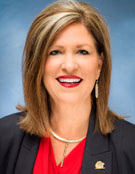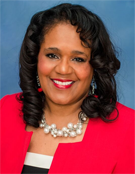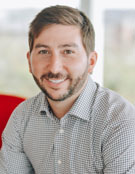Get to Know DSM USA 4 Equity Collective Members: Marta Codina, Renee Hardman + Tanner Krause
This article includes interviews with the tri-chairs of the DSM USA 4 Equity Collective:
DSM USA 4 Equity Collective Q+A
What drew you to the DSM USA 4 Equity Collective?
Marta Codina: The opportunity to make an impactful difference in our community with Racial Justice. I have lived in larger cities in past. I am an immigrant/refugee and understand the importance of making our community more inviting and inclusive to all.
Renee Hardman: I was honored to have been invited to be a Tri-Chair of this initiative with Marta Codina and Tanner Krause — two people with whom I have a high degree of respect for. Throughout both my personal and professional life, I have been driven by what I can do to assist with diversity, equity and inclusion. I have also believed that this work is hard and needs to be elevated in the larger community. I was drawn to working on a regional initiative that will lift up the work around racial equity by recommending systemic and sustainable changes across many sectors in this vibrant community.
Tanner Krause: I never expected to be here, but I’m glad I am. Teree Caldwell-Johnson called me and thought I would be of value in the push for racial equity in this city. How do you say no to that? I’ve grown as a person, and I’m proud to be a part of this work.
Why do you feel like an initiative like this is important in Greater Des Moines (DSM)?
MC: I moved to Greater Des Moines (DSM) almost 30 years ago, and always appreciate the progressive approach we seemed to take — same-sex marriage, etc. It seems that over the years, although the community has become more and more, we have not made the progress we should in achieving progress in racial equity. The time is now to create awareness and IMPACT.
RH: An initiative such as this brings folks together from many diverse backgrounds. It engages the private, public and nonprofits under one big tent to help move the needle in this space. I see good work being done, but it is fragmented. We can create a greater impact when we work collectively to harness each other’s strengths. We are all better when we all take ownership of this work’s success. The community works best when we break down the walls and pull together to create synergy and a unified vision toward progress.
TK: Leaders in this city have a responsibility to consciously work to lift racial minorities due to the explicit and implicit work prior leaders have done to suppress these communities. If we can improve the quality of life for racial minorities in this community, we will all benefit.
What does equity mean to you?
MC: Getting people to the same starting line — meeting people where they are and providing resources to people that are proportionate to what they need to thrive. Also being clear that Equality is not the same thing as Equity — providing equal treatment does not create equitable outcomes.
RH: Equity is about breaking down barriers so that every person has equal access to resources or opportunities. It’s a relentless effort to ensure impartiality and fairness afforded to all regardless of their race, gender or socioeconomic status. It’s about providing everyone unencumbered access to what they need to not only thrive.
TK: Racial equity is achieved when race is no longer a predictive factor in life.
What are you hoping to achieve through your role in the long term?
MC: The ability to advocate and create energy for change with my influence.
RH: I am hoping to lend my lived experience and perspectives to this process. My involvement provides a lens from the perspective of an African American female who has navigated this community in the corporate, nonprofit and public servant arenas. I hope that we have a region-wide blueprint that provides us with a compass of where we are heading and sustainable strategies to get there.
TK: We are here to inspire and enable. Success is when the leaders in this city take our work and implement positive change into their own organization.
What has been your proudest accomplishment thus far?
MC: Assembling an amazing group of “difference makers” with the Collective from public, private and nonprofit sectors to represent and lead needed change.
RH: One of my proudest accomplishments is being elected as the first African American female to the West Des Moines City Council (Member at Large) in the City’s 125 years.
TK: I’m proud of being asked to contribute to this work. This is my first community impact project, and these leaders took a risk on me. I strive to add value to this group and learn as I go.
What is the next big project that your team is working on?
MC: Understanding the outcomes of the Organizational Equity Practices Assessment (OEPA) and being able to create playbooks as resources of the various segments of the community.
RH: Our committee is anxiously awaiting the results of our community wide survey. The results will guide our future steps and offer metrics we will deploy to hold the broader community accountably to moving the needle in the right direction.
TK: Keep an eye out for our Racial Equity Playbook. We are building a resource guide which will assist leaders in activating best practices in their organization.
What has been the hardest part of your job as a Tri-Chair?
MC: It’s the awareness of how much more is needed in our community.
RH: Being patient. This work takes time and moves slowly.
TK: The hardest part of being a Tri-Chair has been saying no. We’ve had requests to expand the scope to include other minority groups. We’ve had requests from individuals to join the Collective. It flatters us that people want us to be bigger, but ultimately, we felt a small group of engaged individuals with a focused scope gives us the best chance to be successful.
How can other organizations get involved with the DSM USA 4 Equity Collective?
RH: Organizations can suggest folks committed to this work to serve on various committees of the Collective, use their voices and influence to speak up and speak out and ensure their organization is poised with the resources needed to “do the work.” Organizations can challenge status quo and move from their comfort zones — as progress will be uncomfortable for folks that may not be further along on the DEI journey.
TK: We are working on tools to make it easier to promote racial equity in organizations. If you want to make your place of work — and your community — stronger, consume the information and apply it in your organization.
To learn more about the Collective’s work and ways to stay engaged, reach out to Capital Crossroads Director Britney Appelgate for more information.
Author Profiles
|

|
After serving as Region Bank President for Wells Fargo Bank, Marta Codina has recently taken on a new enterprise level role in Wells Fargo with the Growth and Branch Administration team, where she is responsible for strategies and execution around customer experience and diverse segments. She is also a founding member of the Wells Fargo Central Iowa Diversity and Inclusion Council and is an executive sponsor of that group, which coordinates Wells Fargo’s local efforts around diversity and inclusion.
|
|

|
Renee Hardman is the CEO of Big Brothers Big Sisters of Central Iowa, where she has served the organization for over 18 years as Big Sister, eight-year Board member and Big Sister of the Year in 1996. Renee also currently serves on the West Des Moines City Council. She made history in 2017 when she was elected as the first African American woman to the West Des Moines City Council in its 125-year history.
|
|

|
Tanner Krause is the CEO of Kum & Go, a convenience retail chain with over 400 stores across 11 states. He is the fourth generation to lead in the family business, and his work experience at Kum & Go dates back more than twenty years. Throughout his tenure, Tanner’s passion and commitment has always been to improve the lives and livelihoods of Kum & Go’s 5,000 Associates.
|
The DSM USA 4 Equity Collective is an effort developed through Capital Crossroads and is comprised of a broad range of community stakeholders purposefully selected to engage in the development of a metric system that seeks to ensure diversity, equity and inclusion (DEI) in all community efforts. The Collective seeks to develop tools, plans and goals that can build more equitable practices across businesses and communities. The Collective aims to assist our region in developing long-term metrics and indicators to gauge progress towards DEI efforts.